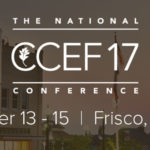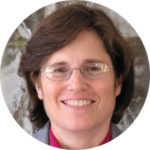 Alasdair Groves gave an encouraging message on how God shakes up the family tree. If we are honest, we all have experiences in family life which are not what we had hoped for. For the church, this can be especially difficult because we have high expectations for family. But there is hope for those facing disappointment. Whether it is dealing with singleness, family secrets that bring shame, divorce, infidelity, infertility, significant handicaps, or children who wander from the faith, we have hope.
Alasdair Groves gave an encouraging message on how God shakes up the family tree. If we are honest, we all have experiences in family life which are not what we had hoped for. For the church, this can be especially difficult because we have high expectations for family. But there is hope for those facing disappointment. Whether it is dealing with singleness, family secrets that bring shame, divorce, infidelity, infertility, significant handicaps, or children who wander from the faith, we have hope.
Alasdair explained that having a good family doesn’t solve one’s problems. Having a loving and nurturing family and siblings that are your friends does not make you immune to rejection or sin. “Family at its best doesn’t guarantee the glory of what God wants for his people and families.”
God’s redeeming work in his family is so much bigger than making our families work just right. “God’s family has room for you, no matter what.” Alasdair explained that the church is and can be family in a way that biological families can not.
Alasdair encouraged us to consider how we think when the family tree branches out in surprising ways. “God chooses to shake up his own family tree.” When we consider the families in scripture, there are no perfect families. God has this consistent preference for including unexpected people in his family. Consider the nation of Israel or the inclusion of the gentiles into God’s family. Or consider Bathsheba, Saul (turned Paul), or Gideon. The family of God is made up of messy people. “God is constantly drawing the weak into his family.”
“God’s family is made up of weak people and weak families and it is His power at work in us.” These themes come together in Jesus. Jesus knows what it is to come unexpectedly in the experience of family. It is his glory and his power and his fingerprints that is causing things to thrive and grow and be sustained.
Alasdair mentions three reasons why God shakes up our families.
- God shakes up our families to break our wrong expectations of what family should be. God does not want us to worship at the altar of family. He also doesn’t want us to worship at the altar of success or self-actualization.
- God wants to strengthen us. We know that God is after something good in the midst of something incredibly hard. Alasdair gave an illustration of growing tomatoes in a pot in a green house when the ground outside was still thawing, before transplanting the tomato plant in the ground outside. A good green house protects a young plant. A bad green house is a terrible thing for a little plant needing protection. But staying in a green house is never the goal. Similarly, having a nurturing family is never the final goal… but rather it is to be in a harsh and difficult world and to bear fruit that will last. Sometimes our little plants get transplanted out of the green house before they feel ready. And yet, we rest in the reality that God is a good gardener. God is saying, I can cause you to thrive and survive and to be what I want you to be where you grow wherever I place you. Sometimes strength comes from facing the frost. Like a tree surviving above the tree line, there is glory and beauty in a tree standing by God’s providence, when it doesn’t seem possible by human standards. God gets the glory in sustaining us. “God uses painful trials in our families to make us what we could not otherwise be. Giving us a strength we could not otherwise have.”
- God wants to restore nuclear families to be a blessing to his universal family. The point is not about your family, but about families being focused outward. We are called to be a blessing to the nations. We should have a vision for seed casting and growing God’s kingdom. God is about family expansion. In the trinity, there was a perfect fellowship and harmony and God was content with no human beings. But he brought us in and made us his children. He expanded his own family.
<< View the other CCEF17 main session summaries here. >>






